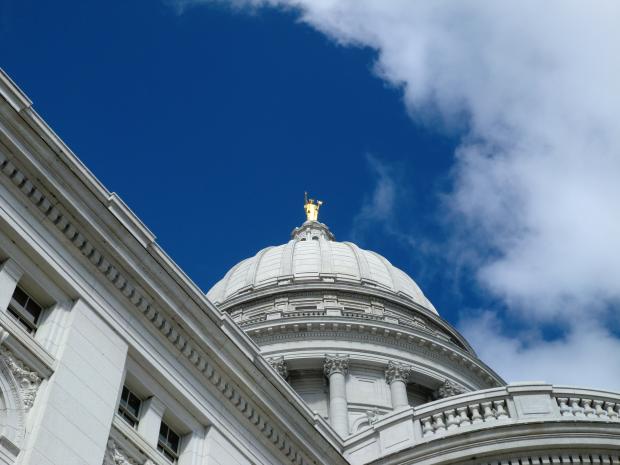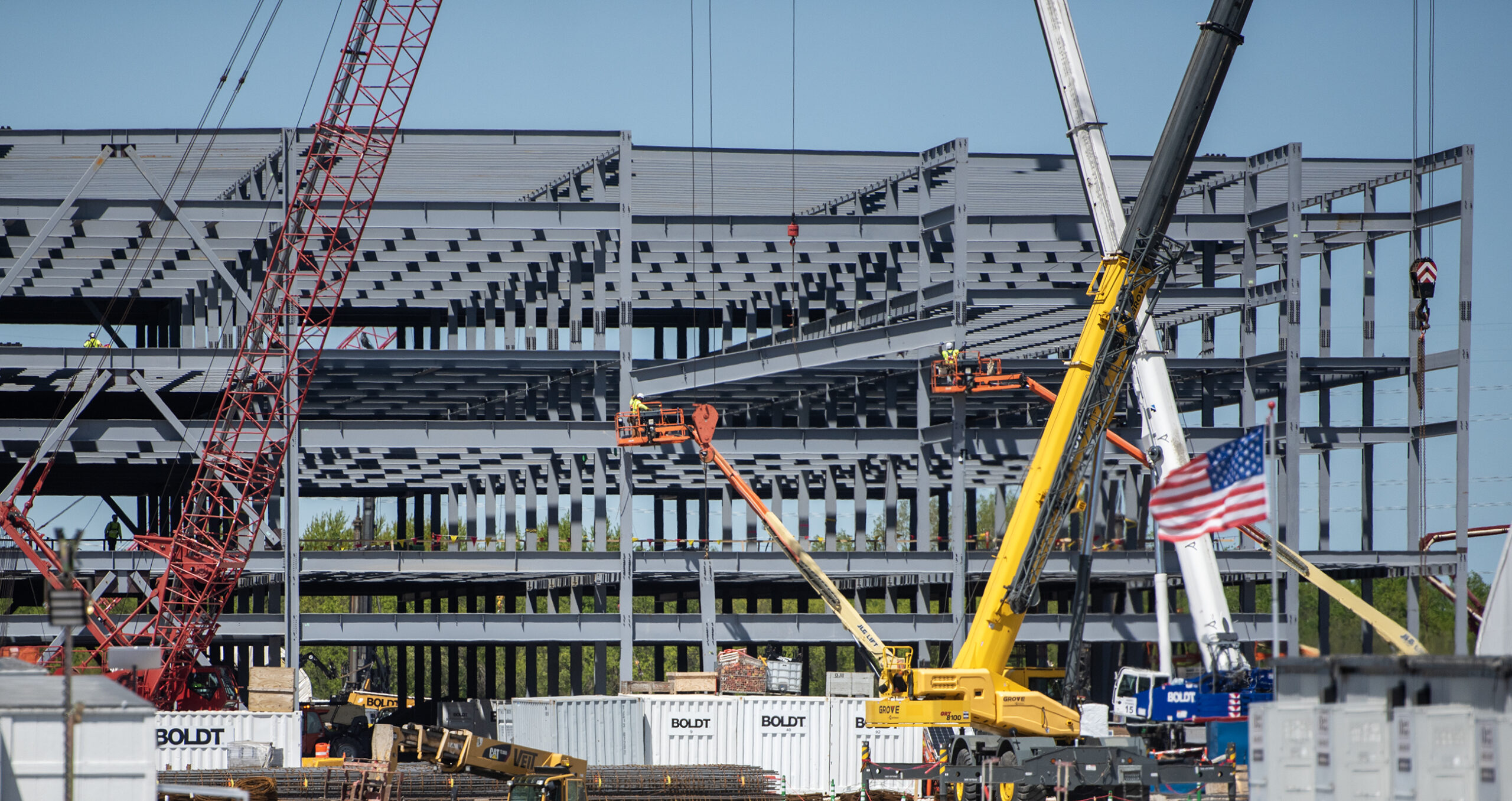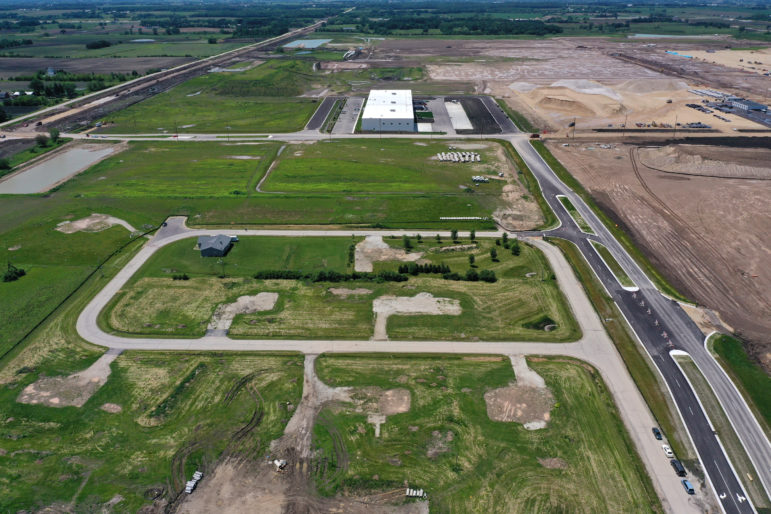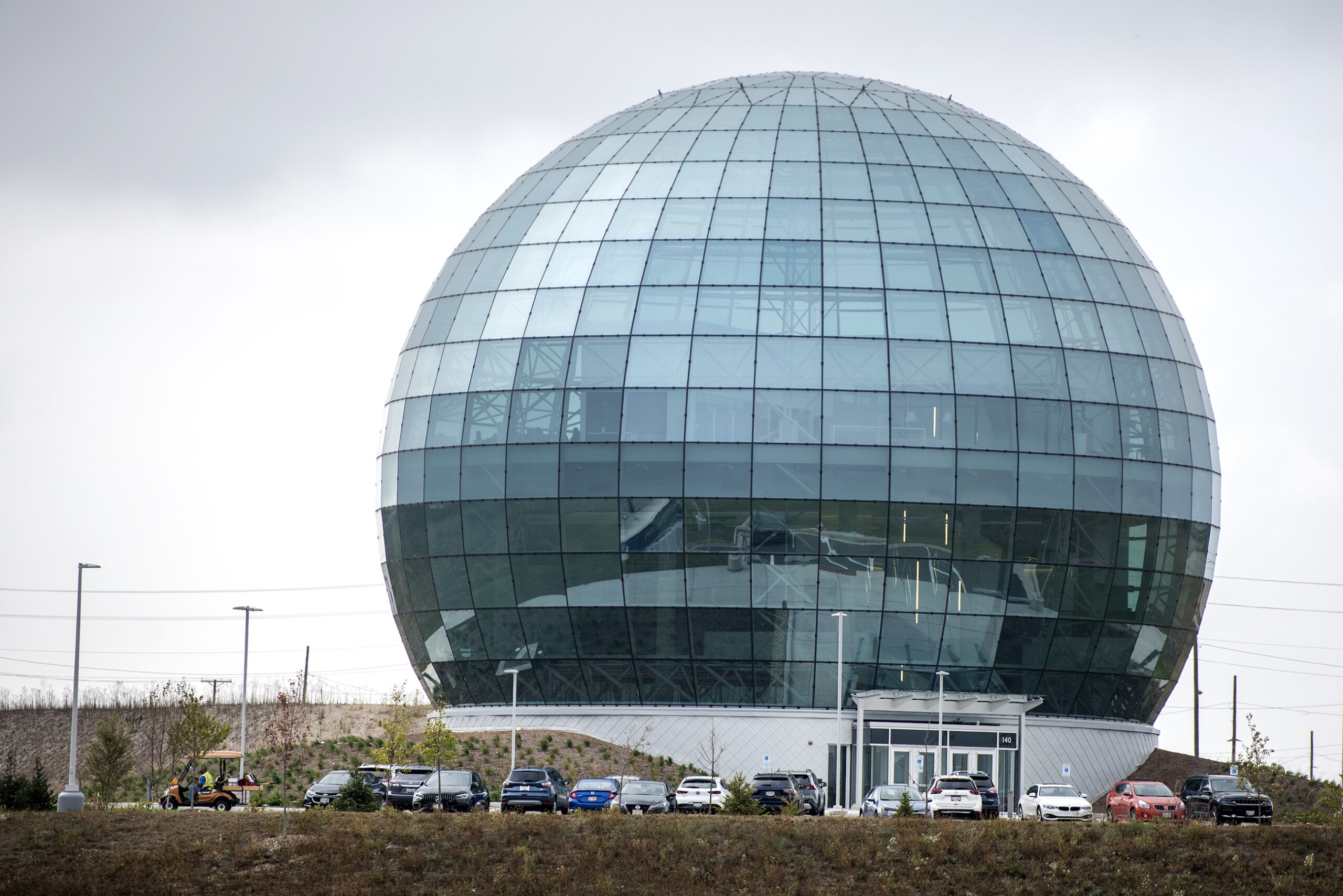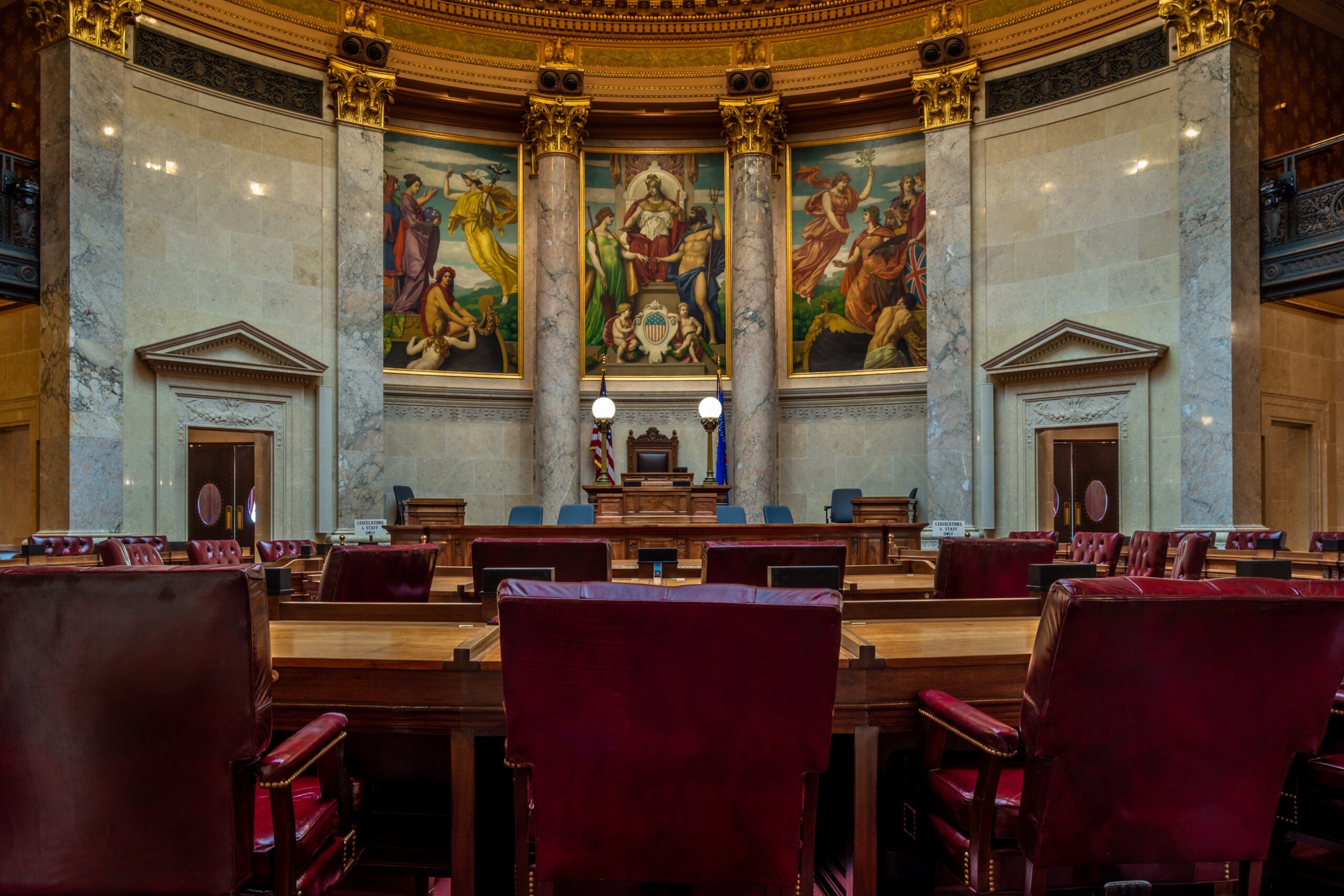Gov. Scott Walker wants state lawmakers to approve more than just $3 billion in tax breaks for tech giant Foxconn, unveiling a special session bill Friday that would roll back environmental protections and borrow hundreds of millions to expand a southeast Wisconsin interstate.
The exemptions to environmental laws would be sweeping for the company, letting it escape state permits for everything from filling a wetland to building on a lakebed.
Walker included the bill with an executive order he issued Friday calling lawmakers into a special session to deal with the Foxconn incentive package.
Stay informed on the latest news
Sign up for WPR’s email newsletter.
“This is a once-in-a-century opportunity for our state and our country, and Wisconsin is ready,” Walker said in a statement.
Democratic Minority Leader Peter Barca said the Foxconn deal could be positive, but he wanted to know more.
“It is clear that we still have a great deal of work ahead of us to ensure that this deal fully protects taxpayers and local governments and that it benefits workers,” Barca said.
The plan would borrow $252 million to expand I-94 south of Milwaukee, an interstate that would take on added significance with the Foxconn plant nearby, and a project that has long been a priority of Assembly Speaker Robin Vos of Rochester.
Borrowing for roads has become an especially thorny issue in Wisconsin as the state’s transportation debt has nearly doubled in the six years since Walker and Republicans took control of state government.
Vos said last week that Walker and Assembly Republicans were prepared to approve a budget with no new borrowing, though this Foxconn deal would still run up the state’s credit card.
The bill includes several rollbacks of environmental protections for the area where the Foxconn plant will be built. They would:
- Let Foxconn discharge dredged materials or fill wetlands without a permit. The provision would apply not only to wetlands Foxconn fills when it’s constructing its 1.6 square mile complex, but also to wetlands it fills once its new facility is fully operational.
- Exempt the company from another state law that requires businesses to create new wetlands when they get permits to fill existing ones.
- Allow Foxconn to change the course of a stream, or straighten a stream without a permit.
- Let Foxconn build on a lake or stream bed without a permit.
- Sidestep a state law that requires environmental impact statements before businesses can begin construction.
- Let public utility projects begin for the Foxconn complex without approval by the Public Service Commission.
As previously announced Wednesday, the Foxconn package would offer $3 billion in state tax breaks.
The bill makes clear that $2.85 billion of those incentives would be awarded by the Wisconsin Economic Development Corporation in the form of income tax credits. The tax credits would be refundable, which means that given the mix of other tax breaks available to manufacturers in Wisconsin, the state would likely cut Foxconn checks for the incentives for the next 15 years.
The bill would also exempt Foxconn from Wisconsin’s sales tax on building expenses, and it would authorize local governments to create Tax Incremental Financing Districts for the Foxconn facility.
Vos told WTMJ-AM radio in Milwaukee that he hoped the Assembly would take up the Foxconn bill in committee next week with passage by the full Legislature in mid-August.
It’s hardly the only high profile issue on lawmakers’ desks. They’ve yet to agree on a new state budget even though Wisconsin’s budget deadline passed nearly a month ago.
The White House projects the Foxconn plant, which will produce the LCD screens made in televisions, would create 3,000 jobs when it’s up and running with up to 13,000 jobs once it’s fully operational.
Experts who’ve studied the company are skeptical of those claims, noting that Foxconn has made a hard push in other countries to automate its factories.
Wisconsin Public Radio, © Copyright 2025, Board of Regents of the University of Wisconsin System and Wisconsin Educational Communications Board.
